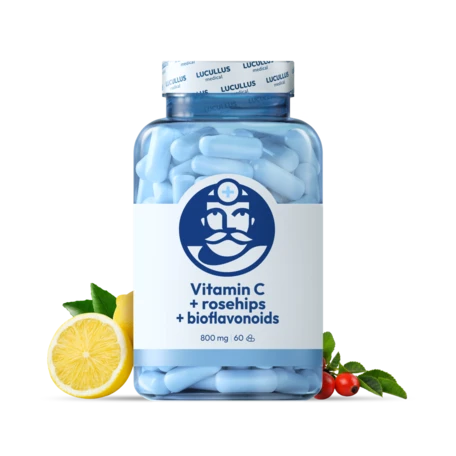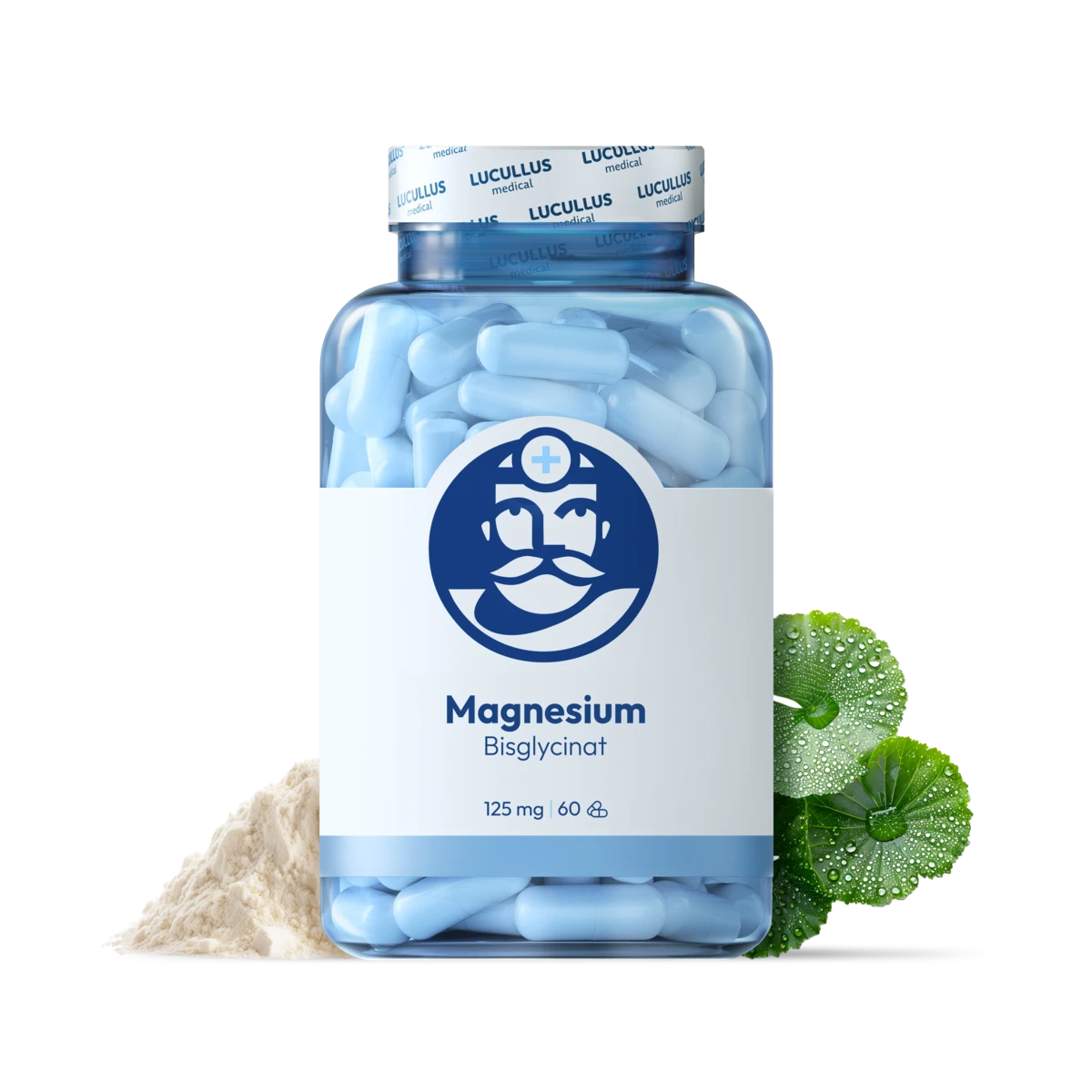
Calming Magnesium (Magnesium Bisglycinate)
Magnesium is an essential mineral for the proper functioning of the body. The name magnesium originates from the Greek city of Magnesia, where this element was first discovered in 1755. It is the 8th most abundant element on Earth, constituting about 2% of the Earth's crust. It has a naturally sour taste, which is also present in mineral waters. We find it in every cell of a green plant, and (magnesium ions are present) also in every cell of the human body. Our body needs magnesium for more than 300 biochemical processes, such as energy production and nucleic acid synthesis, maintaining the correct heart rhythm, and blood pressure. It's hard to find a process in the body that magnesium does not affect.

Male vitality ... to make everything work as it should!
In today's age of daily stress, it's increasingly important to supply the body with the power of nature. Male vitality is a supplement from the most effective plants. A uniquely created formula tailored to the needs of the modern man and his active lifestyle. For more energy and increased performance at work and beyond, so you can fully experience all the adventures waiting for you.

Cal-Mag - a strong duo for your bones
If you are one of those people who don't like swallowing pills, you have probably faced the dilemma of which nutritional/vitamin product to take. If you wanted to be thorough, you would have to swallow several of them daily. That's why there are combinations that can help you with this problem. One of them is the duo of calcium and magnesium: CalMag.

Magnesium - the most important mineral?
If you ask any athlete (especially endurance sports) what supplement they always have with them at competitions, the most common answer will be "magnesium". Magnesium is certainly one of the most important minerals for our body. It is a so-called "deficient" mineral because we lose it from our body through sweating during excessive exertion, but also when you don't exercise! Just living in noise, stress, exertion...

Vitamin B2 Riboflavin
Besides the well-known B-Complex mix of B vitamins, individual vitamins can also be purchased as solo supplements. Why is this good? The well-known set of B vitamins is a suitable dietary supplement if you have an overall deficiency of vitamins in the body. However, if you are dealing with a specific problem, it is sometimes more appropriate to reach for the exact type of vitamin you need to supplement. So why is vitamin B2 needed?

Vitamin C + Rosehip + Bioflavonoids
Designed specifically for stronger antioxidant effects, better absorption and utilization, where the main role is played by rosehip, a natural source of vitamin C. Vitamin C known as ascorbic acid is a nutrient essential for the functioning of our body. Our body cannot synthesize this essential vitamin, so it must be obtained from foods such as fruits and vegetables like citrus fruits, cabbage, bell peppers, horseradish, broccoli, and tomatoes.













